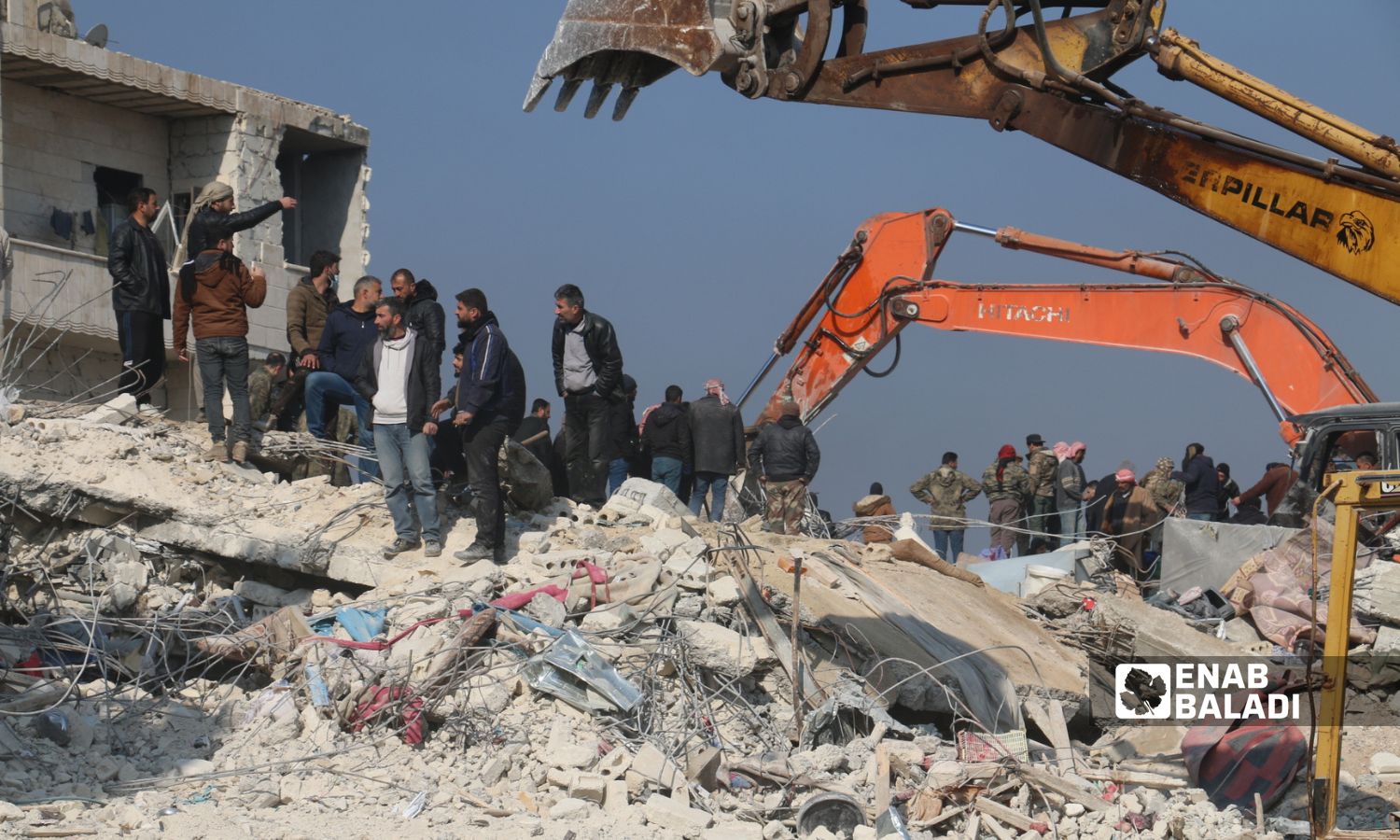



The head of the Syrian Negotiation Commission, Badr Jamous, said Wednesday that three crossings between Turkey and the countryside of Aleppo have been opened for cross-border aid into northern Syria.
The most-wanted move came in response to the urgent need that resulted from the devastating 7.8 magnitude earthquake that rocked wide swaths of Turkey and Syria on Monday, killing more than 11,000 people, which makes it the deadliest since 2011.
Bader Jamous said on his official Twitter account on Wednesday that after continuous communication with the Turkish government, aid was allowed to enter from the Bab al-Salama and al-Rai crossings, which are controlled by the opposition, in addition to the Bab al-Hawa crossing, the main entrance.
Jamous called on countries and international organizations to take urgent and immediate action to help the afflicted in the countryside of Idlib and Aleppo.
In turn, Waddah Farhan, office director of the negotiations committee head, told Enab Baladi that all the crossings from Turkey to northern Syria have been officially opened to receive aid, adding that the most accessible crossings currently are Bab al-Salamah and al-Rai crossings.
Farhan confirmed that the Bab al-Hawa crossing is also open, but the road leading to it from Turkey suffers from damages as a result of the earthquake, making it difficult for border-aid crossing.
Despite the pledge of many organizations and countries to provide relief, food, and other aid, the Syrian opposition does not have any information about the possible arrival of aid across the border with Turkey.
More than 60 hours have passed since the devastating earthquake struck southern Turkey and northern Syria, and since then, no relief and medical aid or any kind of aid has entered the areas of northern Syria that are controlled by the opposition factions, despite the urgent need for it.
While relief and humanitarian aid continue to arrive in the regime’s areas of influence through three airports and a land crossing from the Iraqi side, the regime-run media outlets announce successively.
Madevi Sun-Suon, spokesperson for the United Nations Office for the Coordination of Humanitarian Assistance (OCHA), told Reuters on Tuesday that “The flow of critical U.N. aid from Turkey to northwest Syria has temporarily halted due to damage to roads and other logistical issues related to the deadly earthquake that struck the two countries on Monday.”
“Some roads are broken, some are inaccessible. There are logistical issues that need to be worked through,” Sun-Suon added.
Since the first hours after the earthquake occurred, the opposition’s Syrian National Coalition (SNC) appealed to the international community and international organizations for immediate and emergency intervention to mitigate the effects of the earthquake.
The main opposition body also has requested in official letters a number of countries and international organizations concerned with disasters to secure support.
The SNC stated on Tuesday that a number of countries have expressed their willingness to provide support to help rescue the victims, including the EU, the UK, the Netherlands, Italy, Norway, Belgium, and Canada, stressing their work to assess and study the need to provide immediate support to the stricken areas in northern Syria.
In the latest statistics issued by the Syria Civil Defense teams, the death toll from the earthquake in northwestern Syria has risen to more than 1640 deaths and more than 2,800 injured, with the number expected to increase “significantly” due to the lack of humanitarian support for ongoing relief work in the region.
In regime-held areas, the latest statistics of the regime’s health ministry mentioned that the death toll reached a total of 1,262 while 2285 people have been injured.
According to Reuters, even before the quake struck in the early hours of Monday, the UN estimated that more than 4 million people in northwest Syria, many displaced by the war and living in camps, depended on cross-border aid.
if you think the article contain wrong information or you have additional details Send Correction